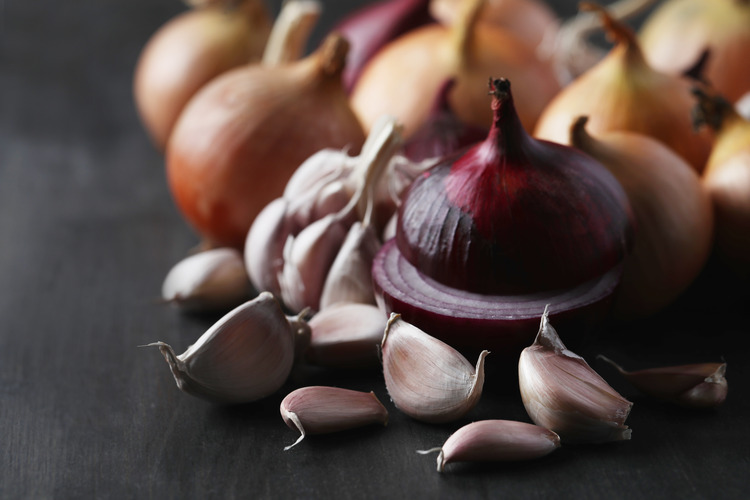While avoiding these items altogether is nearly impossible, understanding how they contribute to bad breath can empower you to manage the issue effectively. With a few mindful habits and preventive steps, you can keep bad breath at bay and feel more confident throughout the day. Read on to discover some of the most common dietary culprits and how to combat their effects.
Why Do Some Foods Cause Bad Breath?
The connection between food and bad breath lies in how certain foods break down and interact with the body. When you consume food, bacteria in your mouth begin breaking it down, often releasing sulfur compounds that have a strong, unpleasant odor. Additionally, some foods are metabolized in the digestive system and absorbed into the bloodstream, which means their byproducts can be expelled through your lungs when you exhale. Factors like dry mouth, acidity, and a food’s natural aroma further contribute to lingering bad breath.
Understanding this process can help you identify which foods to be cautious of and take proactive steps to maintain fresh breath while still enjoying your favorite meals. With proper oral hygiene and mindful dietary habits, you can minimize the effects of these foods without entirely giving them up.
1. The Coffee Paradox
For many, coffee is a morning necessity, but it’s also a major contributor to bad breath. The acidic nature of coffee dries out your mouth, reducing saliva flow—your body’s natural defense against odor-causing bacteria. Additionally, its strong, lingering aroma sticks around long after the last sip.
To tackle coffee-induced bad breath, consider drinking a glass of water alongside your coffee. The water helps rinse away lingering particles and stimulates saliva production. You could also opt for green tea or herbal infusions as a gentler alternative to your morning cup.
2. Garlic and Onions: Flavors with a Punch
No conversation about bad breath is complete without mentioning garlic and onions. These kitchen staples are packed with sulfur compounds that make your food flavorful but also leave a lasting impression on your breath. Even brushing your teeth might not eliminate the odor, as these compounds can enter your bloodstream and be expelled through your lungs.
The good news? There are ways to minimize their impact. Try incorporating fresh parsley, mint, or other herbs into your meal to neutralize the odor. Also, brushing your teeth or using a tongue scraper soon after eating garlic or onions can help reduce their effect.

3. Alcohol’s Double Trouble
While a glass of wine or your favorite cocktail may be enjoyable, alcohol is notorious for causing bad breath. It dehydrates your body and reduces saliva production, leaving your mouth dry and bacteria unchecked. Additionally, alcohol has its own pungent aroma that lingers long after the fun is over.
To counteract these effects, drink plenty of water alongside your alcoholic beverages. Staying hydrated ensures that saliva can do its job of washing away bacteria. Chewing on sugar-free gum or using an alcohol-free mouthwash afterward can also help.
4. Dairy’s Hidden Impact
Dairy products like milk, cheese, and yogurt may seem harmless, but they can be sneaky contributors to bad breath. These foods are rich in proteins that bacteria in your mouth thrive on, producing unpleasant-smelling sulfur compounds.
If dairy is a regular part of your diet, brushing your teeth or rinsing your mouth after consuming it can help keep the odor at bay. For those who are lactose intolerant, switching to dairy alternatives might reduce both digestive issues and bad breath.
5. Fish: A Love-Hate Relationship
While fish is a great source of protein and omega-3 fatty acids, it can leave behind an unmistakable smell. Oily fish like salmon, tuna, and mackerel contain trimethylamine, a compound known for its strong and persistent odor.
To manage fishy breath, pair your meal with a squeeze of lemon or other citrus fruits, which can help neutralize odors. Drinking water immediately after your meal or chewing on fresh herbs can also mitigate the lingering effects.

6. The Spicy Legacy of Curry
Curry dishes are a treasure trove of rich flavors, often made with a combination of garlic, onion, turmeric, and other spices. While these ingredients add depth to your meal, they can also linger on your breath for hours.
Combatting the effects of curry requires a proactive approach to oral hygiene. Brush and floss thoroughly after eating, and consider using a tongue scraper to remove any residue. Additionally, chewing on cardamom or fennel seeds, traditional remedies in some cultures, can help freshen your breath naturally.
How to Take Control of Bad Breath
Bad breath from food is a manageable issue when paired with good oral care habits. Here are some simple strategies to ensure fresh breath throughout the day:
- Hydration is Key: Drinking water regularly helps wash away food particles and keeps saliva production in check.
- Brush and Floss Consistently: Cleaning your teeth and gums thoroughly, at least twice a day, is essential for removing bacteria and food debris.
- Don’t Forget Your Tongue: The tongue often harbors a significant amount of bacteria. Use a tongue scraper or your toothbrush to clean it daily.
- Carry Sugar-Free Gum or Mints: These can be lifesavers in social situations and help stimulate saliva to rinse away odor-causing particles.
Use an Antibacterial Mouthwash: A good mouthwash can target bacteria directly and leave your breath smelling fresh.

When to Seek Help from a Dentist
If bad breath persists despite maintaining good oral hygiene and managing your diet, it may indicate an underlying issue. Problems like gum disease, tooth decay, or other oral health conditions could be at play.
At Roots & Crown MicroDENTIStry, we believe in addressing the root cause of bad breath to restore your confidence. Our team provides personalized care and advanced treatments to help you achieve optimal oral health. Whether it’s routine dental checkups or targeted solutions for halitosis, we’re here to support you.
Bad breath doesn’t have to be a constant worry. By being mindful of the foods you eat and adopting effective oral care practices, you can enjoy fresher breath and improved confidence. Remember, your smile is one of your most valuable assets—take care of it!

